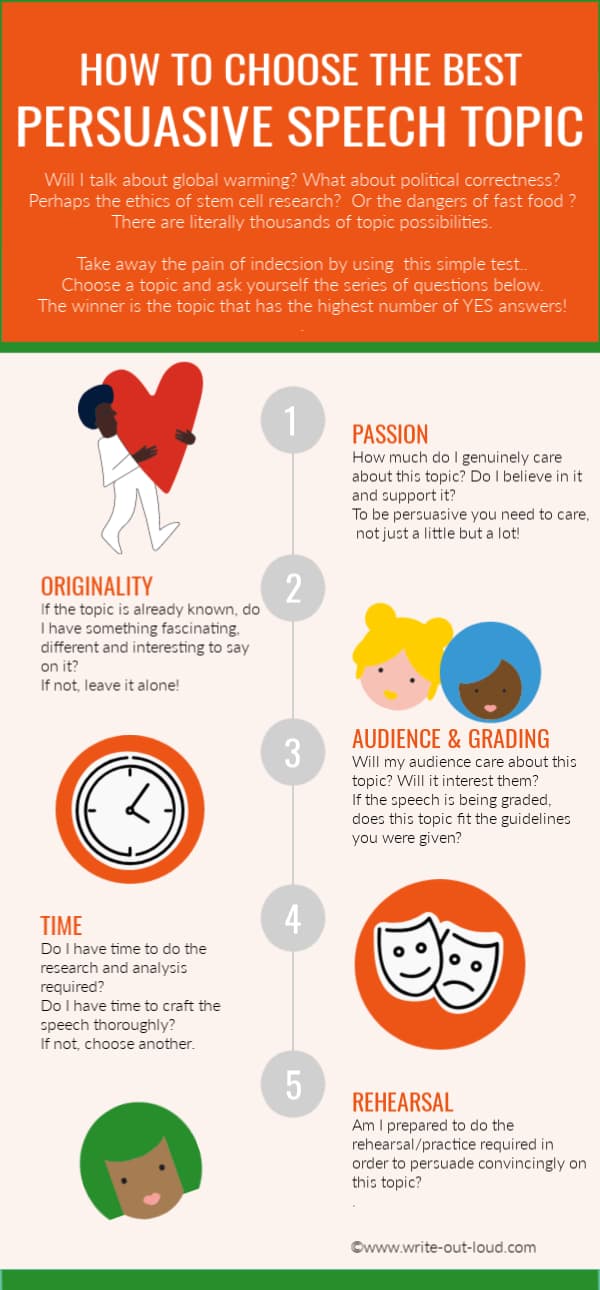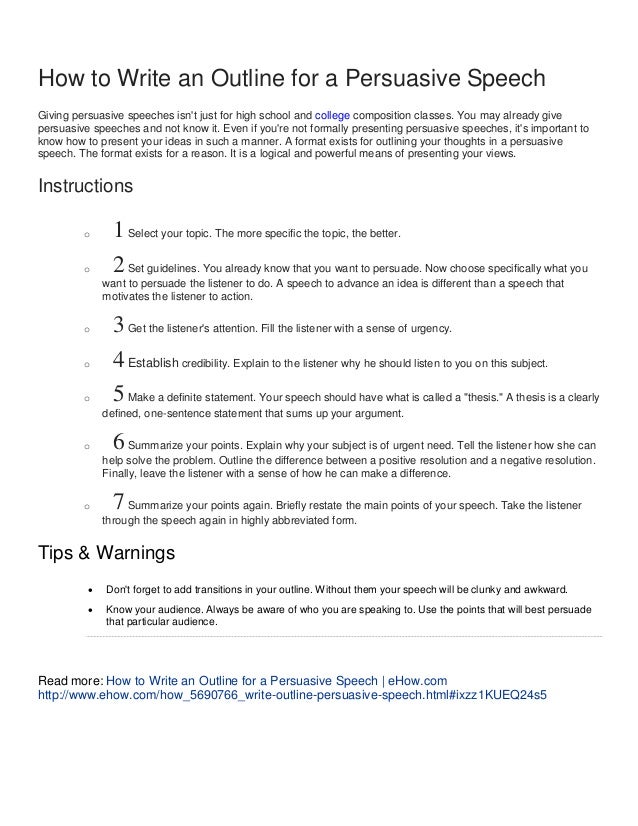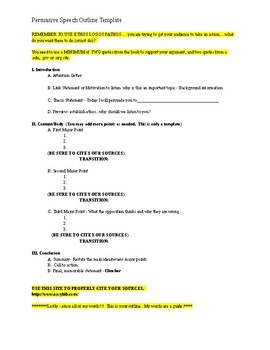Persuasive Speech Outline, Structure and Tips for Delivery August 13, 2017 - Gini Beqiri - 6 min read A persuasive speech is a speech that is given with the intention of convincing the audience to believe or do something. This could be virtually anything - voting, organ donation, recycling, and so on. The best persuasive speech topics are thought-provoking, daring and have a clear opinion. You should speak about something you are knowledgeable about and can argue your opinion for, as well as objectively discuss counter-arguments. How to choose a topic for your speech.

Public speaking is not just a talent that some people are born with. With the proper dedication, training, and practice, anyone can become skilled at speaking in public. Many operators at an answering service have these qualities. A public speaker should possess many attributes, including charisma, charm, humor, and the ability to persuade.

Public speaking is not just a talent that some people are born with. With the proper dedication, training, and practice, anyone can become skilled at speaking in public. Many operators at an answering service have these qualities. A public speaker should possess many attributes, including charisma, charm, humor, and the ability to persuade. There are a wide variety of types of speeches. Possibly the most important and influential type is called a persuasive speech. This is where the presenter tries to get their audience members to open up and change their views on a certain subject. When used well, a persuasive speech can be a very powerful tool. Some famous persuasive speeches were the “I Have A Dream” speech by Martin Luther King, Junior and Jimmy Valvano’s famous ESPY awards speech. There is a certain general format that all persuasive speeches follow.
- Attention Getter
- The opening sentence of a persuasive speech should always say something to grab the attention of the audience. This is potentially the most important line; if the audience doesn’t like the opening, they may ignore the following ideas and concepts.
- Thesis Statement
- The thesis statement is where the speaker tells their listeners their position on the issue they are discussing. By the end of the speech, the presenter’s goal is for the audience to agree with their thesis statement. A thesis statement should be relatively short, and clearly state the views of the speaker. This statement is to inform the audience of the speaker’s mindset and try to get the audience to see the issue their way.
- Reason #1
- After the introductory portion of the speech is over, the speaker starts presenting reasons to the audience. These reasons are various statements that provide support for the thesis statement. After each reason, the speaker lists examples as evidence to try and provide a factual argument to sway listeners’ opinion to agree with their own.
- A. Example
- B. Example
- C. Example
- Reason #2
- A. Example
- B. Example
- C. Example
- Reason #3
- A. Example
- B. Example
- C. Example
- Conclusion/Final Appeal
- The conclusion is the most important part of a persuasive speech besides the introduction and thesis statement. This is where the speaker must sum up and tie in all of their arguments into an organized and solid point.
A Good Outline Ofr A Persuasive Speech Essay
Some sites with useful information and resources about giving speeches:
Persuasive Speech Outline Format

A Good Outline Ofr A Persuasive Speech Outline
- Speeches – a handout developed by the University of North Carolina
- Gifts of Speech – women’s speeches from around the world
- Public Speaking – a great guide on being adequatly prepared for a presentation
- Persuasive Speech Notes – great information on how to formulate an effective persuasive speech
- Public Speaking Tips – advice on speaking in public from University of Hawaii students
- Public Speaking Anxiety – a very informative pamphlet about anxiety due to public speaking and how to avoid it
- Public Speaking Dos and Don’ts – good tips of what to do and what not to do when presenting a speech